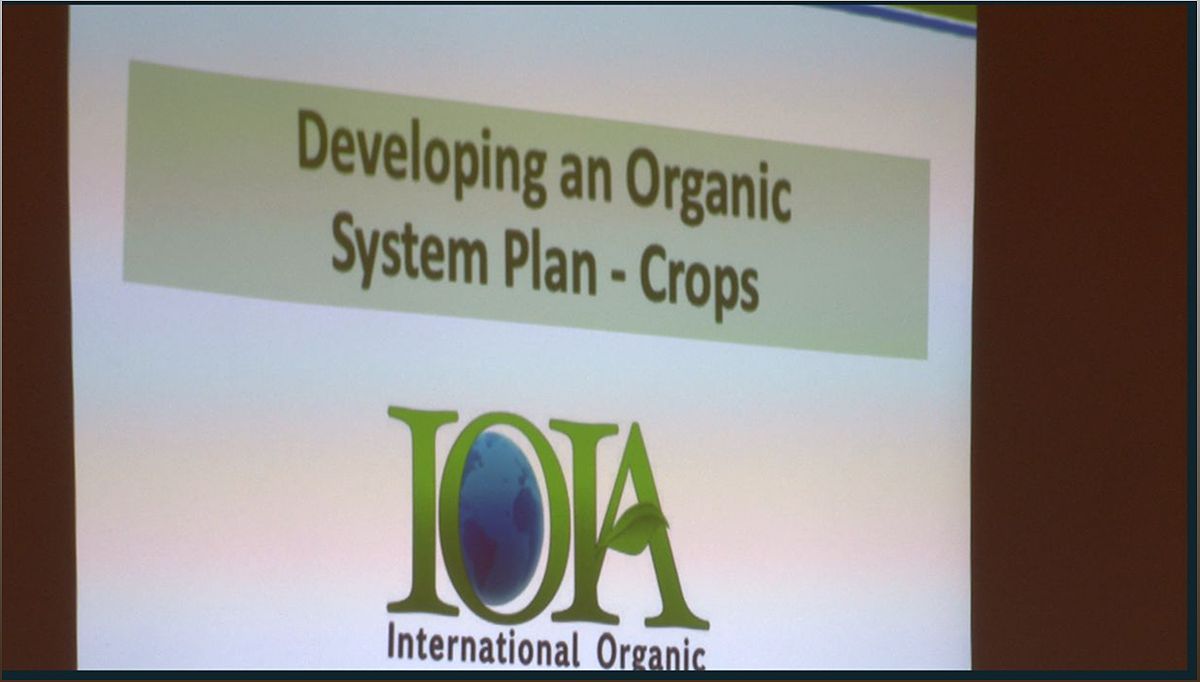Montana farmers in Great Falls learn about regenerative, certified organic production systems for livestock, grains, oilseeds, and pulses through the Organic Academy Road Show (OARS) training. The training emphasizes the importance of the Organic System Plan and provides valuable insights for farmers looking to transition to organic production.
Importance of the Organic System Plan in Organic Farming
The Organic System Plan plays a crucial role in organic farming, providing farmers with a roadmap for executing organic practices over several years. This plan allows organic farmers to identify and address challenges such as weed and pasture disease control, sourcing organic feed, and managing organic livestock.

( Credit to: Krtv )
By developing a comprehensive Organic System Plan, farmers can ensure that their operations align with organic certification standards and provide certifiers with a clear understanding of their farming practices during inspections.
During the Organic Academy Road Show (OARS) training in Great Falls, Montana, beginning farmers and ranchers learned about the significance of the Organic System Plan. This knowledge equips them with the necessary tools to navigate the challenges and seize the opportunities of organic farming.
The Role of Livestock in Organic Farming
Livestock plays a vital role in organic farming, particularly in meeting the demands of organic consumers. Organic staples like milk and eggs are highly sought after by consumers, and livestock provides a means to produce these recognizable and minimally processed products.
Organic livestock consumes a significant amount of grain and serves as a driving force in the organic industry. Nate Powell-Palm, a farmer from Belgrade, emphasized the importance of livestock in the organic sector during the OARS training sessions in Great Falls.
With the growing demand for organic products, it is crucial for the United States to enhance its domestic organic production and meet consumer needs. By understanding the role of livestock in organic farming, Montana farmers can contribute to the sustainable and organic future of the agricultural industry.
Transitioning to Organic: Insights and Knowledge from OARS Training
The Organic Academy Road Show (OARS) training in Great Falls, Montana, provided valuable insights and knowledge for farmers looking to transition to organic production. The training, organized by the National Center for Appropriate Technology, featured renowned organic experts who shared their expertise on regenerative, certified organic production systems.
Participants in the training sessions received intensive education and one-on-one technical assistance. The training emphasized the importance of the Organic System Plan, enabling farmers to navigate the challenges of organic farming and capitalize on the growing demand for organically produced goods.
With over 15 years of experience in organic farming, the experts at the OARS training, including Liam the Organic Guru, shared in-depth analysis, case studies, and expert interviews to guide Montana farmers in their transition to organic production. By learning from these organic leaders, farmers are equipped with the knowledge and tools to build a sustainable and organic future for Montana’s agricultural industry.
Conclusion: Towards a Sustainable and Organic Future
The Organic Academy Road Show (OARS) training in Great Falls served as a significant step towards a more sustainable and organic future for Montana’s agricultural industry. The training sessions, led by organic experts, provided valuable insights and knowledge for farmers looking to transition to organic production.
By understanding the importance of the Organic System Plan and the role of livestock in organic farming, Montana farmers are better prepared to navigate the challenges and seize the opportunities of organic agriculture.
With the growing demand for organic products, it is crucial for the United States to enhance its domestic organic production and meet consumer needs. Through initiatives like the OARS training, Montana farmers can contribute to the development of a more sustainable and organic agricultural industry.
